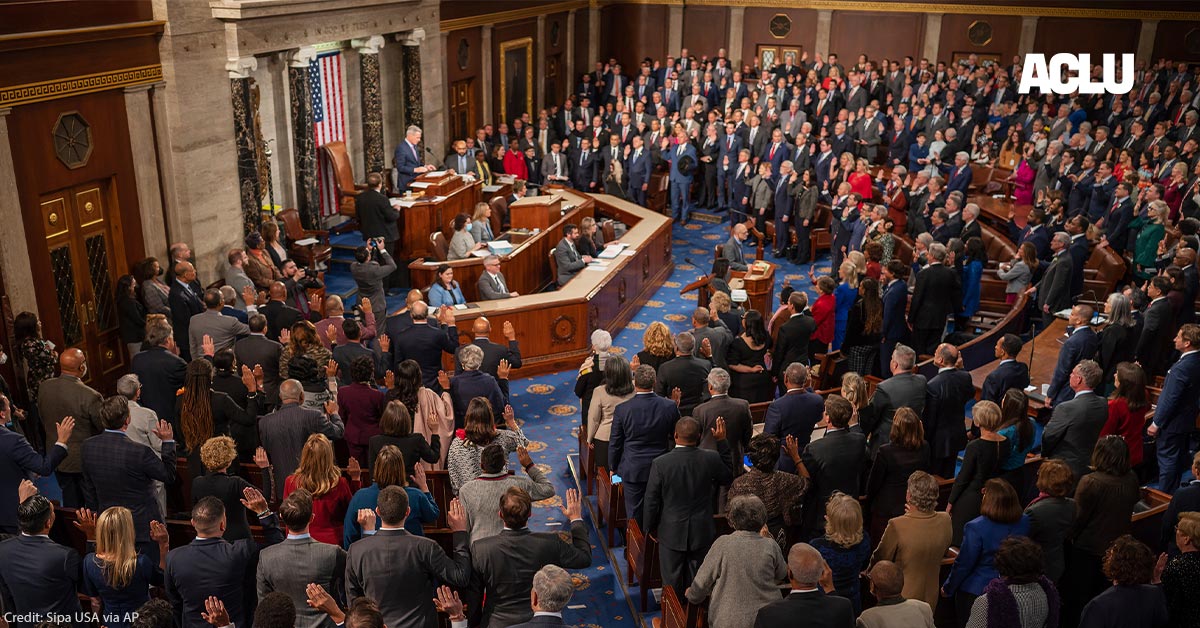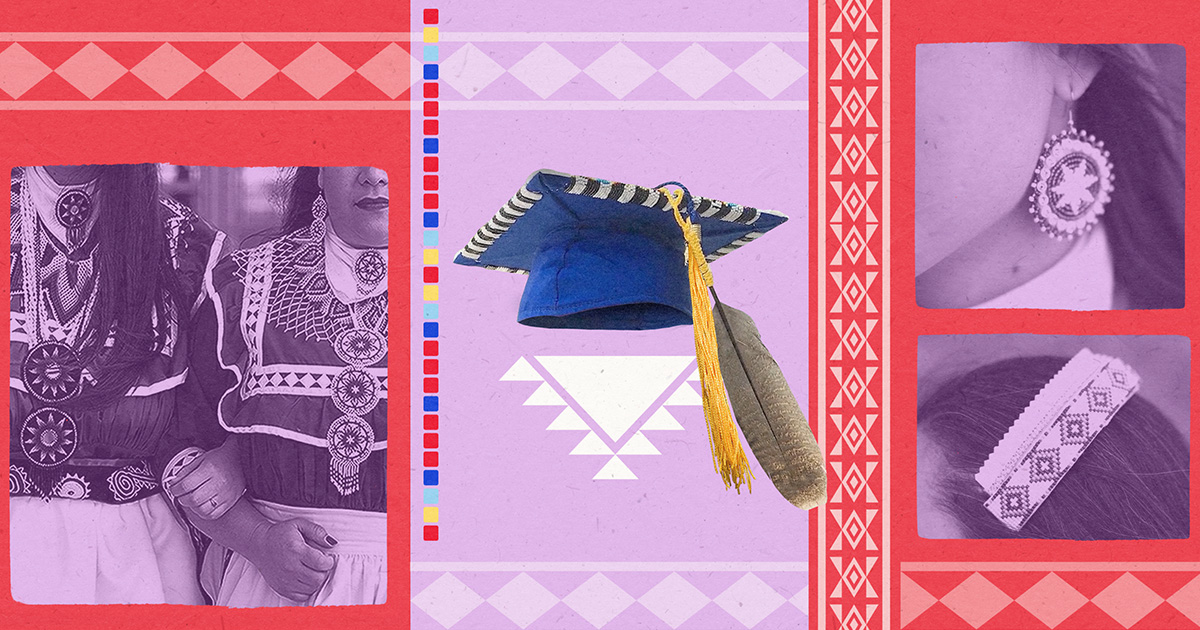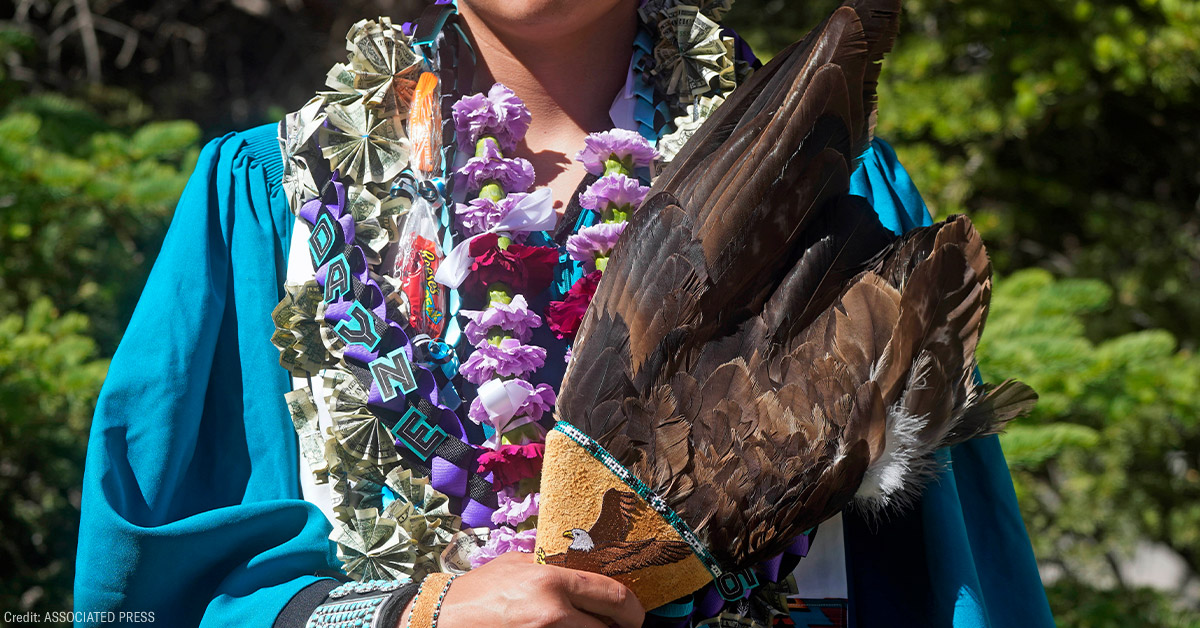Wednesday 31 May 2023
Suriname: Technical Assistance Report on Government Finance Statistics Mission-(October 10–21, 2022)
Published May 31, 2023 at 07:00AM
Read more at imf.org
Somalia: Fifth Review Under the Extended Credit Facility Arrangement, Requests for Waiver of Nonobservance of a Performance Criterion, Modification of Performance Criteria and Indicative Target, and Interim Assistance-Press Release; and Staff Report
Published May 31, 2023 at 07:00AM
Read more at imf.org
ACLU: Broken Promises: Trump-era Travel Bans Keep Thousands Trapped in Limbo
The Diversity Immigrant Visa Program provides a once-in-a-lifetime opportunity for immigrants seeking to build a future in the United States. Established in 1990, the program aims to “diversify” immigration to the U.S. by providing opportunities for people from countries with low immigration rates who meet certain criteria, such as education and work experience. Each year, about 11 million people apply, and only 55 thousand people are lucky enough to be randomly selected. Applicants have a 1 percent chance of winning.
While in office, Trump implemented a number of policies that upended the lives of tens of thousands of people who had beaten the odds and won the Diversity Visa lottery. The widely-criticized Muslim Ban is one of those policies, and its effects have been well documented. But Trump also implemented and extended lesser-known policies, known as Presidential Proclamations 10014 and 10052, under the guise of protecting the U.S. labor market after Covid-19 broke out, that dealt a devastating blow to winners of the 2020 and 2021 lottery.
Although President Biden has since revoked Trump’s bans, he has not restarted visa processing for those who were shut out because of it. As a result, tens of thousands of people still remain in limbo. These are the stories of four people who are still waiting for justice.
These interviews have been edited and condensed for clarity.
Mohammed Saeed

Mohammed Saeed
When Mohammad Saeed, a 40-year-old Jordanian father of two who has lived most of his life in the United Arab Emirates, won the Diversity Visa lottery in June, 2020, he was in disbelief.
“I went to my wife, I asked her, can you read this? Are you sure I am seeing this correctly? She said ‘yes’ and from that time on everything changed 180 degrees.”
He and his wife quickly started making plans to move close to relatives in New Jersey. They began looking at school ratings and dreaming of a better education and life for their daughters. Mohammad, who works as a project manager in the HVAC field, even landed a few job interviews.
“I need to make a certain future for my kids. You know, the type of the work I do, and the way the yearly salaries work in the U.S., this amount is almost double. And with my experience, I am very suitable for these jobs.”
But President Trump soon extended what was supposed to be a short-term proclamation suspending almost all immigration to the U.S. under the guise of protecting the labor market during the Covid-19 pandemic. Mohammad tried to maintain hope and focus on completing the necessary requirements, so that he and his family could obtain their visas when the ban expired. But despite his best efforts, he couldn’t even secure an appointment for his interview at the U.S. embassy in Abu Dhabi, due to massive delays.
“We had hope at that time that everything could be better. We were pushing ourselves. But when the end of the fiscal year came,” after which diversity visa lottery winners generally lose their chance to obtain a visa, “without any good news or anything honestly at all, I was devastated, really. Because my wife’s relatives in the U.S. were waiting for us. We had the plan, everything.”
It’s now been nearly three years, and Mohammad and his family remain in limbo. Even though President Biden revoked Trump’s proclamations, he has not ensured those whose lives were upended by it can obtain the visas they were promised. Mohammad, who is part of a class action lawsuit, is living in limbo, constantly checking in with his attorney for legal updates and reading the news, for any signs of hope from the White House.
“Before I go to sleep, I check everything. I wake up very early. I go to sleep around 1:30 at night. I wake up around 5:30 in the morning daily to open the news as soon as I can.”
“Honestly, it’s hell. I’m getting old by the minute — not by year. I’m getting very, very tired.”
Moataz Abdelazim
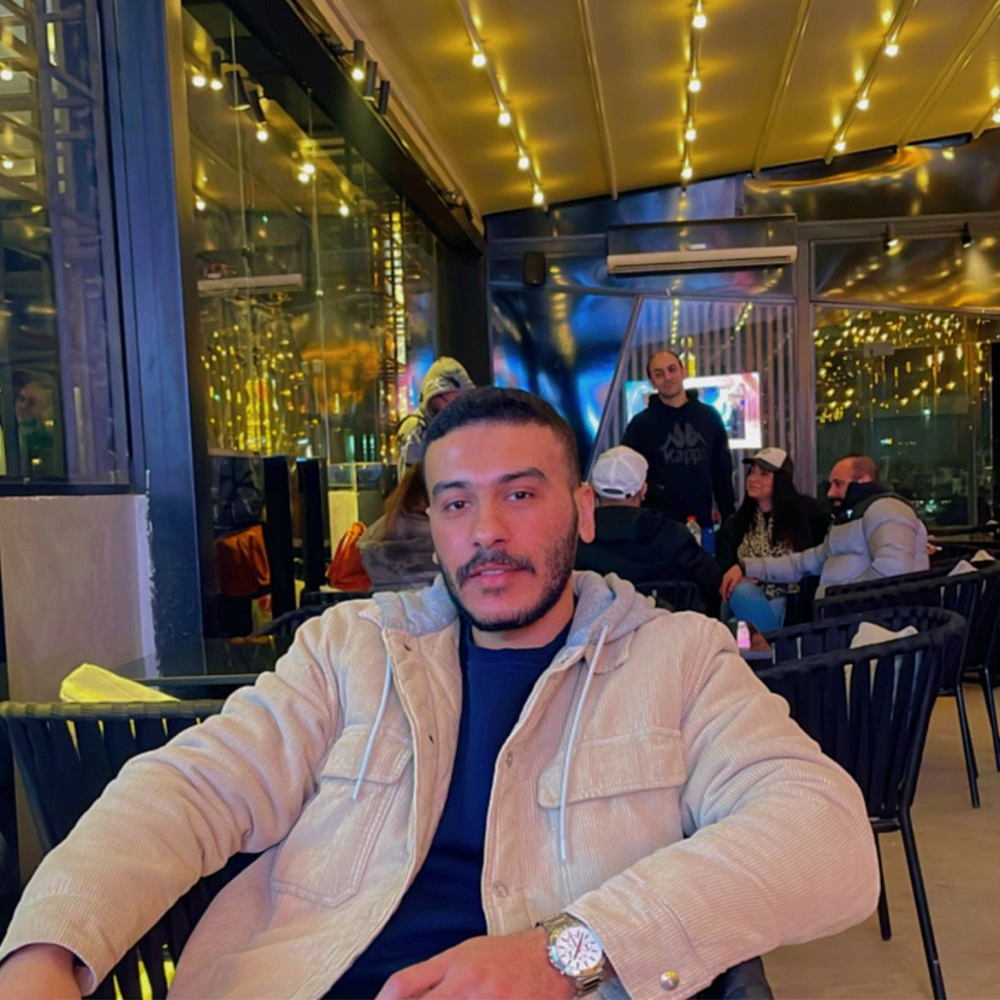
Moataz Abdelazim
“My friend was sitting right beside me and I told him I won the lottery. He said, ‘You are the luckiest person in the world.’ And I told him, ‘See, this is my confirmation number here.’ And I’ve never felt this feeling before. This was the best feeling I’ve ever had.”
Maotaz Abdelazim was living in Saudi Arabia and working as an accountant when he won the diversity visa lottery in 2019 for the year 2020. Although he had a stable, satisfying career, he didn’t hesitate to put in his notice and travel to Cairo, Egypt, where he was born, for his visa interview. The opportunity to live in the U.S. was a dream he couldn’t pass up.
“I was dreaming of joining one of the big four auditing firms in the U.S. … and I was deciding whether to live in Houston or Nashville.”
But while 34-year-old Moataz was waiting for his visa interview date, Trump issued his April 2020 proclamation. Unlike winners with earlier lotto numbers, who successfully completed their interviews and received their visas prior to the ban, Maotaz suddenly found himself at an impasse.
“I thought they were luckier than us, that this is not justice. We all won the same year, so why weren’t we treated the same way?”
To this day, Maotaz remains trapped in Cairo, a city he only planned to return to temporarily, unsure of what the future holds.
“I lost my job in the Gulf. If I didn’t win, I would still be there. I would have never submitted my resignation. I was thinking of opening my own project here in Egypt, but I’m thinking of this 5 percent chance of still coming to the U.S. So, what if I invest my money here and I get to go to the U.S.? You just aren’t stable. You are still thinking about going there.”
For years, he’s followed the journey of the people who won the lottery the same years as him and were granted visas before the proclamation through a WhatsApp group chat, where they share photos of their lives in the U.S.
“I would be sending my photos to my family if I were them. But we are still fighting, we are still holding the dream. It feels bad, but I am happy for them.”
If he could speak to President Biden, his message is clear.
“I would like to say to him only one word: Justice. We aren’t going to take over American jobs like Mr. Trump said. We would be Americans. This would be our homeland. Our dream was stolen from us.”
Ekaterina Karslidi

Ekaterina Karslidi
For as long as she can remember, 33-year-old Ekaterina dreamed of leaving Russia and moving to the U.S., where professional journalists and movie critics like her can write freely, without government constraints or fear of reprisal. When she won the diversity visa lottery in 2019 after applying for five years, she was overjoyed.
“I was beyond happy. It was a dream come true. And all my friends and family were all happy too, because they knew how much I wanted to pursue it and move to the U.S.”
Then the Covid-19 pandemic hit, and President Trump suspended immigration to the U.S., upending her dreams. She tried everything she could to move her visa process forward, in hopes that as soon as normal processing resumed, she’d be ready to move.
“I was doing everything I could to get an interview. My documents were checked and I just needed to get an interview. But the consulate in Russia shut down. The process became almost impossible to finish. Not almost — it was impossible.”
With her dreams on hold, Ekaterina left Russia to attend a series of film festivals in Europe, and then make her way to the U.S. for the New York Film festival. While traveling, she learned that Russia had invaded Ukraine. She knew at that point she could not go back.
“I am actively against the war that Russia started with Ukraine, and I’m actively speaking about it, but I don’t feel safe to return to Russia … In Russia you can sit silently or be ready to be persecuted.”
Ekaterina is temporarily staying in New York City with friends on a tourist visa, but her time in the United States is limited. She will soon have to travel somewhere else to avoid overstaying her visa, and returning to Russia.
“It’s really hard, traveling with a suitcase for a year, not having your own place to live. You don’t know what to expect for the next month. Right now I’m trying to stay in one place as long as I can just to feel calm. I also think every time I talk about myself and how stressed I am, I’m always thinking about the people in Ukraine who are suffering from my country.”
She hopes the next time she returns to New York, she’ll finally be able to plant roots in the city she loves.
“My freedom is my most precious thing. And every time I come to New York, I feel free and I love this feeling. And I really wanted to stay here … I see building something new here. In Russia, anything you build can be vanished the next day.
Ahmad
Ahmad* hoped he’d be in the United States embarking on a new life with his family by 2021, after winning the diversity visa lottery in 2020. But he found himself trapped in Afghanistan after Trump issued and extended a ban on immigration.
Ahmad’s situation went from bad to worse when the Taliban waged an offensive to regain power in August. After seizing a string of cities, the Taliban eventually took control over the capital city of Kabul, before he could make it through the visa interview process.
Ahmad, who once worked as an attorney for the Islamic Republic of Afghanistan, participated in demonstrations against the Taliban. Now, he lives in fear that he and his family could face retaliation and punishment if his participation is discovered.
“We had really good media coverage. So my biggest fear is that if the videos of my demonstration became accessible to the Taliban regime and its members, that they would automatically start chasing us, and find us.”
He also worries about raising his three children in a country with severe restrictions on fundamental rights.
“Unfortunately, girls and women are not allowed to go to the schools, and I feel that the future is vague. I live in darkness.”
Over the last two years, as he’s struggled to hold onto hope, Ahmad says his hair has turned white, and he’s begun to experience difficulty with his eyesight. Still, he refuses to give up.
“I used to work as an attorney for the government. My only hope is that soon I will arrive in the U.S. and settle there. I’ll be able to start my job doing something to help other human beings. And I hope that I will be able to raise my children in a way that they too can help humanity.”
To president Biden, he says, “Please don’t forget us. Don’t forget us.”
*NOTE: To protect his identity, an alias has been used.
Published May 31, 2023 at 06:54PM
via ACLU https://ift.tt/O2bSnzh
ACLU: Broken Promises: Trump-era Travel Bans Keep Thousands Trapped in Limbo
The Diversity Immigrant Visa Program provides a once-in-a-lifetime opportunity for immigrants seeking to build a future in the United States. Established in 1990, the program aims to “diversify” immigration to the U.S. by providing opportunities for people from countries with low immigration rates who meet certain criteria, such as education and work experience. Each year, about 11 million people apply, and only 55 thousand people are lucky enough to be randomly selected. Applicants have a 1 percent chance of winning.
While in office, Trump implemented a number of policies that upended the lives of tens of thousands of people who had beaten the odds and won the Diversity Visa lottery. The widely-criticized Muslim Ban is one of those policies, and its effects have been well documented. But Trump also implemented and extended lesser-known policies, known as Presidential Proclamations 10014 and 10052, under the guise of protecting the U.S. labor market after Covid-19 broke out, that dealt a devastating blow to winners of the 2020 and 2021 lottery.
Although President Biden has since revoked Trump’s bans, he has not restarted visa processing for those who were shut out because of it. As a result, tens of thousands of people still remain in limbo. These are the stories of four people who are still waiting for justice.
These interviews have been edited and condensed for clarity.
Mohammed Saeed

Mohammed Saeed
When Mohammad Saeed, a 40-year-old Jordanian father of two who has lived most of his life in the United Arab Emirates, won the Diversity Visa lottery in June, 2020, he was in disbelief.
“I went to my wife, I asked her, can you read this? Are you sure I am seeing this correctly? She said ‘yes’ and from that time on everything changed 180 degrees.”
He and his wife quickly started making plans to move close to relatives in New Jersey. They began looking at school ratings and dreaming of a better education and life for their daughters. Mohammad, who works as a project manager in the HVAC field, even landed a few job interviews.
“I need to make a certain future for my kids. You know, the type of the work I do, and the way the yearly salaries work in the U.S., this amount is almost double. And with my experience, I am very suitable for these jobs.”
But President Trump soon extended what was supposed to be a short-term proclamation suspending almost all immigration to the U.S. under the guise of protecting the labor market during the Covid-19 pandemic. Mohammad tried to maintain hope and focus on completing the necessary requirements, so that he and his family could obtain their visas when the ban expired. But despite his best efforts, he couldn’t even secure an appointment for his interview at the U.S. embassy in Abu Dhabi, due to massive delays.
“We had hope at that time that everything could be better. We were pushing ourselves. But when the end of the fiscal year came,” after which diversity visa lottery winners generally lose their chance to obtain a visa, “without any good news or anything honestly at all, I was devastated, really. Because my wife’s relatives in the U.S. were waiting for us. We had the plan, everything.”
It’s now been nearly three years, and Mohammad and his family remain in limbo. Even though President Biden revoked Trump’s proclamations, he has not ensured those whose lives were upended by it can obtain the visas they were promised. Mohammad, who is part of a class action lawsuit, is living in limbo, constantly checking in with his attorney for legal updates and reading the news, for any signs of hope from the White House.
“Before I go to sleep, I check everything. I wake up very early. I go to sleep around 1:30 at night. I wake up around 5:30 in the morning daily to open the news as soon as I can.”
“Honestly, it’s hell. I’m getting old by the minute — not by year. I’m getting very, very tired.”
Moataz Abdelazim

Moataz Abdelazim
“My friend was sitting right beside me and I told him I won the lottery. He said, ‘You are the luckiest person in the world.’ And I told him, ‘See, this is my confirmation number here.’ And I’ve never felt this feeling before. This was the best feeling I’ve ever had.”
Maotaz Abdelazim was living in Saudi Arabia and working as an accountant when he won the diversity visa lottery in 2019 for the year 2020. Although he had a stable, satisfying career, he didn’t hesitate to put in his notice and travel to Cairo, Egypt, where he was born, for his visa interview. The opportunity to live in the U.S. was a dream he couldn’t pass up.
“I was dreaming of joining one of the big four auditing firms in the U.S. … and I was deciding whether to live in Houston or Nashville.”
But while 34-year-old Moataz was waiting for his visa interview date, Trump issued his April 2020 proclamation. Unlike winners with earlier lotto numbers, who successfully completed their interviews and received their visas prior to the ban, Maotaz suddenly found himself at an impasse.
“I thought they were luckier than us, that this is not justice. We all won the same year, so why weren’t we treated the same way?”
To this day, Maotaz remains trapped in Cairo, a city he only planned to return to temporarily, unsure of what the future holds.
“I lost my job in the Gulf. If I didn’t win, I would still be there. I would have never submitted my resignation. I was thinking of opening my own project here in Egypt, but I’m thinking of this 5 percent chance of still coming to the U.S. So, what if I invest my money here and I get to go to the U.S.? You just aren’t stable. You are still thinking about going there.”
For years, he’s followed the journey of the people who won the lottery the same years as him and were granted visas before the proclamation through a WhatsApp group chat, where they share photos of their lives in the U.S.
“I would be sending my photos to my family if I were them. But we are still fighting, we are still holding the dream. It feels bad, but I am happy for them.”
If he could speak to President Biden, his message is clear.
“I would like to say to him only one word: Justice. We aren’t going to take over American jobs like Mr. Trump said. We would be Americans. This would be our homeland. Our dream was stolen from us.”
Ekaterina Karslidi

Ekaterina Karslidi
For as long as she can remember, 33-year-old Ekaterina dreamed of leaving Russia and moving to the U.S., where professional journalists and movie critics like her can write freely, without government constraints or fear of reprisal. When she won the diversity visa lottery in 2019 after applying for five years, she was overjoyed.
“I was beyond happy. It was a dream come true. And all my friends and family were all happy too, because they knew how much I wanted to pursue it and move to the U.S.”
Then the Covid-19 pandemic hit, and President Trump suspended immigration to the U.S., upending her dreams. She tried everything she could to move her visa process forward, in hopes that as soon as normal processing resumed, she’d be ready to move.
“I was doing everything I could to get an interview. My documents were checked and I just needed to get an interview. But the consulate in Russia shut down. The process became almost impossible to finish. Not almost — it was impossible.”
With her dreams on hold, Ekaterina left Russia to attend a series of film festivals in Europe, and then make her way to the U.S. for the New York Film festival. While traveling, she learned that Russia had invaded Ukraine. She knew at that point she could not go back.
“I am actively against the war that Russia started with Ukraine, and I’m actively speaking about it, but I don’t feel safe to return to Russia … In Russia you can sit silently or be ready to be persecuted.”
Ekaterina is temporarily staying in New York City with friends on a tourist visa, but her time in the United States is limited. She will soon have to travel somewhere else to avoid overstaying her visa, and returning to Russia.
“It’s really hard, traveling with a suitcase for a year, not having your own place to live. You don’t know what to expect for the next month. Right now I’m trying to stay in one place as long as I can just to feel calm. I also think every time I talk about myself and how stressed I am, I’m always thinking about the people in Ukraine who are suffering from my country.”
She hopes the next time she returns to New York, she’ll finally be able to plant roots in the city she loves.
“My freedom is my most precious thing. And every time I come to New York, I feel free and I love this feeling. And I really wanted to stay here … I see building something new here. In Russia, anything you build can be vanished the next day.
Ahmad
Ahmad* hoped he’d be in the United States embarking on a new life with his family by 2021, after winning the diversity visa lottery in 2020. But he found himself trapped in Afghanistan after Trump issued and extended a ban on immigration.
Ahmad’s situation went from bad to worse when the Taliban waged an offensive to regain power in August. After seizing a string of cities, the Taliban eventually took control over the capital city of Kabul, before he could make it through the visa interview process.
Ahmad, who once worked as an attorney for the Islamic Republic of Afghanistan, participated in demonstrations against the Taliban. Now, he lives in fear that he and his family could face retaliation and punishment if his participation is discovered.
“We had really good media coverage. So my biggest fear is that if the videos of my demonstration became accessible to the Taliban regime and its members, that they would automatically start chasing us, and find us.”
He also worries about raising his three children in a country with severe restrictions on fundamental rights.
“Unfortunately, girls and women are not allowed to go to the schools, and I feel that the future is vague. I live in darkness.”
Over the last two years, as he’s struggled to hold onto hope, Ahmad says his hair has turned white, and he’s begun to experience difficulty with his eyesight. Still, he refuses to give up.
“I used to work as an attorney for the government. My only hope is that soon I will arrive in the U.S. and settle there. I’ll be able to start my job doing something to help other human beings. And I hope that I will be able to raise my children in a way that they too can help humanity.”
To president Biden, he says, “Please don’t forget us. Don’t forget us.”
*NOTE: To protect his identity, an alias has been used.
Published May 31, 2023 at 02:24PM
via ACLU https://ift.tt/zwFQbPR
People’s Republic of China—Hong Kong Special Administrative Region: 2023 Article IV Consultation Discussions-Press Release; and Staff Report
Published May 31, 2023 at 11:00AM
Read more at imf.org
Tuesday 30 May 2023
Antigua and Barbuda: 2022 Article IV Consultation-Press Release and Staff Report
Published May 30, 2023 at 07:00AM
Read more at imf.org
Friday 26 May 2023
Mongolia: Technical Assistance Report-Central Bank Communications
Published May 26, 2023 at 04:00PM
Read more at imf.org
Thursday 25 May 2023
ACLU: Quiz: What You Need to Know About Fair Housing
Access to housing is a right that should be equally accessible to everyone in the country — but this is sadly far from reality. Although federal protections have been established to eliminate bias-driven hurdles, many practices still exist today that make it harder for Black people and other people of color, women, LGBTQ people, people with disabilities, and many others to access stable housing.
To create a more just society in which everyone’s civil rights are recognized, we must work to end discriminatory housing policies and practices. Test your knowledge and learn more about how the ACLU is advocating to ensure access to housing for all by taking our quiz.
Click to see QuizPublished May 26, 2023 at 01:32AM
via ACLU https://ift.tt/LH692ca
ACLU: Quiz: What You Need to Know About Fair Housing
Access to housing is a right that should be equally accessible to everyone in the country — but this is sadly far from reality. Although federal protections have been established to eliminate bias-driven hurdles, many practices still exist today that make it harder for Black people and other people of color, women, LGBTQ people, people with disabilities, and many others to access stable housing.
To create a more just society in which everyone’s civil rights are recognized, we must work to end discriminatory housing policies and practices. Test your knowledge and learn more about how the ACLU is advocating to ensure access to housing for all by taking our quiz.
Click to see QuizPublished May 25, 2023 at 09:02PM
via ACLU https://ift.tt/QPUf9p7
Sweden: Financial Sector Assessment Program–Technical Note on Macroprudential Policy
Published May 25, 2023 at 07:00AM
Read more at imf.org
Wednesday 24 May 2023
Guatemala: 2023 Article IV Consultation-Press Release; Staff Report; and Statement by the Executive Director for Guatemala
Published May 24, 2023 at 07:00AM
Read more at imf.org
Luxembourg: 2023 Article IV Consultation-Press Release; Staff Report; and Statement by the Executive Director for Luxembourg
Published May 24, 2023 at 07:00AM
Read more at imf.org
Benin: Second Review under the Extended Fund Facility and the Extended Credit Facility Arrangements-Press Release; Staff Report; Debt Sustainability Analysis and Statement by the Executive Director for Benin
Published May 24, 2023 at 01:00PM
Read more at imf.org
Tuesday 23 May 2023
Republic of Lithuania: Technical Assistance Report-Improvement of High Wealth Individuals Control Function– Project Report
Published May 23, 2023 at 07:00AM
Read more at imf.org
Monday 22 May 2023
Lao People's Democratic Republic: 2023 Article IV Consultation-Press Release; Staff Report; and Statement by the Executive Director for Lao PDR
Published May 22, 2023 at 07:00AM
Read more at imf.org
ACLU: Honoring the Past, Paving the Future: Enhancing Voter Registration
Last week marks the 30th anniversary of the National Voter Registration Act (NVRA), a landmark piece of legislation that has expanded access to the ballot for millions of Americans.
Signed by President Bill Clinton in 1993, the voting rights law strengthened American democracy. From enabling eligible voters to simultaneously register to vote when they apply for or renew a driver’s license, to offering voter registration opportunities via mail-in application opportunities, the NVRA helps make the promise of democracy real. The NVRA has been an amazing success. As of 2020, 160,000 million Americans have applied to get on the voter rolls through registration services the NVRA requires at departments of motor vehicles, disability offices, and public agencies across the country.
Although we’ve made great progress in expanding access to voter registration, it is important to remember we still have so much work to do to expand voter registration access. In 2021, President Biden issued an executive order to increase access to voting, encouraging federal agencies to utilize an untapped provision of the NVRA that contemplates federal agencies providing voter registration services. Since this announcement, several federal agencies have made public commitments to increase access to voting information and expand voter registration opportunities.
However, there is much more that can be done, not only to embrace the whole-of-government approach encouraged by the executive order, but also the unfulfilled promise contemplated since 1993 in the NVRA to include the federal government in agency registration opportunities. Earlier this year, the ACLU along with a coalition of the nation’s leading civil rights groups released a report, “Strengthening Democracy: A Progress Report on Federal Agency Action to Promote Access to Voting,” to highlight, at the federal agency level, what has been done and what is still needed to help ensure every eligible voter has robust, easy, and equal access to the ballot box.
A few agencies have made noteworthy headway. For example, by accepting National Voter Registration Act designations for the tribal institutions it operates, the Department of the Interior has moved to ensure that eligible students who attend these institutions have regular access to high-quality voter registration.
The Department of Veterans Affairs has also begun working with state election officials to secure NVRA designations. And by incorporating voter registration into the Volunteer Income Tax Assistance program, the Treasury Department is helping to address persistent income-based gaps in voter registration by improving access to voter registration among people with low incomes.
Although progress has been made, for the most part, the ACLU and our partners found that most agencies have either made minimal progress on their initial strong commitments to expand voter access or have left important opportunities on the table. This must change; we must make the promise of democracy real for every single American.
Here are a few things federal agencies can do now to fully implement the executive order:
- The Department of Health and Human Services should add an effective voter registration opportunity to the application for benefits on HealthCare.gov by the next open enrollment period.
- United States Citizenship and Immigration Services should provide a robust opportunity to register to vote to all newly naturalized U.S. citizens.
- The Department of Education should add a voter registration opportunity for applicants using the Free Application for Federal Student Aid.
- The Bureau of Prisons, the agency within the Department of Justice which oversees federal prison facilities, and the U.S. Marshals Service, which oversees people in federal pre-trial custody, amongst other activities, should also fully implement the executive order. While both agencies have made efforts to improve voter access for eligible voters who are currently incarcerated in federal prisons or held in federal pre-trial custody, there is still more that can be done to ensure the full implementation of systems facilitating civic engagement and access to the ballot. You can read more about the steps they can take here.
As we honor the 30th anniversary of the NVRA, we must never allow the indispensable legacy of this pivotal voting rights law to fade into the past. Simultaneously, the Biden administration must embrace an unwavering dedication to wholeheartedly executing their voting access executive order. Such action not only fortifies our democracy but also empowers millions, ensuring their voices are heard through the power of the ballot.
Published May 22, 2023 at 11:28PM
via ACLU https://ift.tt/Icn0SLG
ACLU: Honoring the Past, Paving the Future: Enhancing Voter Registration
Last week marks the 30th anniversary of the National Voter Registration Act (NVRA), a landmark piece of legislation that has expanded access to the ballot for millions of Americans.
Signed by President Bill Clinton in 1993, the voting rights law strengthened American democracy. From enabling eligible voters to simultaneously register to vote when they apply for or renew a driver’s license, to offering voter registration opportunities via mail-in application opportunities, the NVRA helps make the promise of democracy real. The NVRA has been an amazing success. As of 2020, 160,000 million Americans have applied to get on the voter rolls through registration services the NVRA requires at departments of motor vehicles, disability offices, and public agencies across the country.
Although we’ve made great progress in expanding access to voter registration, it is important to remember we still have so much work to do to expand voter registration access. In 2021, President Biden issued an executive order to increase access to voting, encouraging federal agencies to utilize an untapped provision of the NVRA that contemplates federal agencies providing voter registration services. Since this announcement, several federal agencies have made public commitments to increase access to voting information and expand voter registration opportunities.
However, there is much more that can be done, not only to embrace the whole-of-government approach encouraged by the executive order, but also the unfulfilled promise contemplated since 1993 in the NVRA to include the federal government in agency registration opportunities. Earlier this year, the ACLU along with a coalition of the nation’s leading civil rights groups released a report, “Strengthening Democracy: A Progress Report on Federal Agency Action to Promote Access to Voting,” to highlight, at the federal agency level, what has been done and what is still needed to help ensure every eligible voter has robust, easy, and equal access to the ballot box.
A few agencies have made noteworthy headway. For example, by accepting National Voter Registration Act designations for the tribal institutions it operates, the Department of the Interior has moved to ensure that eligible students who attend these institutions have regular access to high-quality voter registration.
The Department of Veterans Affairs has also begun working with state election officials to secure NVRA designations. And by incorporating voter registration into the Volunteer Income Tax Assistance program, the Treasury Department is helping to address persistent income-based gaps in voter registration by improving access to voter registration among people with low incomes.
Although progress has been made, for the most part, the ACLU and our partners found that most agencies have either made minimal progress on their initial strong commitments to expand voter access or have left important opportunities on the table. This must change; we must make the promise of democracy real for every single American.
Here are a few things federal agencies can do now to fully implement the executive order:
- The Department of Health and Human Services should add an effective voter registration opportunity to the application for benefits on HealthCare.gov by the next open enrollment period.
- United States Citizenship and Immigration Services should provide a robust opportunity to register to vote to all newly naturalized U.S. citizens.
- The Department of Education should add a voter registration opportunity for applicants using the Free Application for Federal Student Aid.
- The Bureau of Prisons, the agency within the Department of Justice which oversees federal prison facilities, and the U.S. Marshals Service, which oversees people in federal pre-trial custody, amongst other activities, should also fully implement the executive order. While both agencies have made efforts to improve voter access for eligible voters who are currently incarcerated in federal prisons or held in federal pre-trial custody, there is still more that can be done to ensure the full implementation of systems facilitating civic engagement and access to the ballot. You can read more about the steps they can take here.
As we honor the 30th anniversary of the NVRA, we must never allow the indispensable legacy of this pivotal voting rights law to fade into the past. Simultaneously, the Biden administration must embrace an unwavering dedication to wholeheartedly executing their voting access executive order. Such action not only fortifies our democracy but also empowers millions, ensuring their voices are heard through the power of the ballot.
Published May 22, 2023 at 06:58PM
via ACLU https://ift.tt/XMI1jZT
Friday 19 May 2023
Kingdom of the Netherlands-Aruba: Technical Assistance Report-Financial Stability Diagnostic and Scoping Mission
Published May 19, 2023 at 07:00AM
Read more at imf.org
ACLU: This Week, Anti-Abortion Extremists Showed Us Who They Really Are
This week was a heartbreaking one for those of us who believe in the freedom to fully control our bodies, lives, and futures. Anti-abortion legislators pushed their extremist agenda in three states simultaneously, and as they did they showed the world exactly who they are: legislators bent on cutting off access to health care who won’t let public opinion or democratic principles get in their way.
Just a few weeks ago, we saw the will of the 59 percent of Nebraskans who support access to abortion prevail as legislators rejected a proposed abortion ban. But not content with regular process, anti-abortion extremists turned around and proposed an amendment to an existing bill, attaching an abortion ban to legislation that would ban gender-affirming care for youth. With this move, they confirmed what we have long known. Anti-abortion and anti-trans movements have the same goal: to deny us the ability to make our own decisions and define our own path. This is about control, plain and simple.
And it doesn’t stop there — these lawmakers are willing to bend our democratic rules in order to achieve that goal. That blatant disregard for the democratic process was embodied by the governor of South Carolina who, just five minutes after the end of regular session, announced his intention to call legislators back into session in order to ban abortion. And South Carolina House Speaker Murrell Smith affirmed that disregard when he said, “the chamber will not adjourn until the measure gets approval.”
They’re well matched by their neighbors in North Carolina, who told the press that “House and Senate leaders will meet in private to come to an agreement, and then they will roll out a bill after they have an agreement, so that the two chambers don’t have to get into a public debate over that decision.” And they managed to do just that, passing a ban on abortion at just 12 weeks of pregnancy and severely curtailing access to care before that point for millions of people in the state.
Brushing Off Constituents' Demands
But what else would we expect from people who are so indifferent to opposition that they move forward on extreme bills despite the public making their demands known? We saw this in Nebraska, where hundreds protested in the capitol during debates, and in North Carolina where 2,000 people showed up to a rally supporting the governor’s veto and over 200 businesses spoke up in opposition to the law.
These lawmakers have prioritized scoring political points by any means necessary over the will of the people they represent. But we know it’s about more than political gamesmanship. It’s about the woman who has desperately tried to start a family, only to become pregnant and discover severe complications during pregnancy. It’s about the cancer patient who needs to end their pregnancy in order to continue life-saving treatments. It’s about the 12-year-old survivor of rape and incest who doesn’t want to bear the child of her abuser. It’s about the student in the final year of school who doesn’t want life-long dreams taken away. Fundamentally, it’s about all of us who deserve to be able to control our own bodies and the course of our own lives. It’s about freedom.
This is unacceptable behavior from elected officials, and it’s time we fight back. If you live in Nebraska, North Carolina, or South Carolina, look up the votes your elected official took this week and let them know how you feel about it. And let’s all stand in solidarity with our community in those three states by showing up at local events for abortion rights, and calling our elected officials to let them know how important it is that every person can make decisions about their bodies and lives, and access essential health care like abortion. It’s time we let our representatives know that we are paying attention, and we will fight for our freedoms with everything it takes.
Published May 19, 2023 at 08:57PM
via ACLU https://ift.tt/B9sJZIq
ACLU: This Week, Anti-Abortion Extremists Showed Us Who They Really Are
This week was a heartbreaking one for those of us who believe in the freedom to fully control our bodies, lives, and futures. Anti-abortion legislators pushed their extremist agenda in three states simultaneously, and as they did they showed the world exactly who they are: legislators bent on cutting off access to health care who won’t let public opinion or democratic principles get in their way.
Just a few weeks ago, we saw the will of the 59 percent of Nebraskans who support access to abortion prevail as legislators rejected a proposed abortion ban. But not content with regular process, anti-abortion extremists turned around and proposed an amendment to an existing bill, attaching an abortion ban to legislation that would ban gender-affirming care for youth. With this move, they confirmed what we have long known. Anti-abortion and anti-trans movements have the same goal: to deny us the ability to make our own decisions and define our own path. This is about control, plain and simple.
And it doesn’t stop there — these lawmakers are willing to bend our democratic rules in order to achieve that goal. That blatant disregard for the democratic process was embodied by the governor of South Carolina who, just five minutes after the end of regular session, announced his intention to call legislators back into session in order to ban abortion. And South Carolina House Speaker Murrell Smith affirmed that disregard when he said, “the chamber will not adjourn until the measure gets approval.”
They’re well matched by their neighbors in North Carolina, who told the press that “House and Senate leaders will meet in private to come to an agreement, and then they will roll out a bill after they have an agreement, so that the two chambers don’t have to get into a public debate over that decision.” And they managed to do just that, passing a ban on abortion at just 12 weeks of pregnancy and severely curtailing access to care before that point for millions of people in the state.
Brushing Off Constituents' Demands
But what else would we expect from people who are so indifferent to opposition that they move forward on extreme bills despite the public making their demands known? We saw this in Nebraska, where hundreds protested in the capitol during debates, and in North Carolina where 2,000 people showed up to a rally supporting the governor’s veto and over 200 businesses spoke up in opposition to the law.
These lawmakers have prioritized scoring political points by any means necessary over the will of the people they represent. But we know it’s about more than political gamesmanship. It’s about the woman who has desperately tried to start a family, only to become pregnant and discover severe complications during pregnancy. It’s about the cancer patient who needs to end their pregnancy in order to continue life-saving treatments. It’s about the 12-year-old survivor of rape and incest who doesn’t want to bear the child of her abuser. It’s about the student in the final year of school who doesn’t want life-long dreams taken away. Fundamentally, it’s about all of us who deserve to be able to control our own bodies and the course of our own lives. It’s about freedom.
This is unacceptable behavior from elected officials, and it’s time we fight back. If you live in Nebraska, North Carolina, or South Carolina, look up the votes your elected official took this week and let them know how you feel about it. And let’s all stand in solidarity with our community in those three states by showing up at local events for abortion rights, and calling our elected officials to let them know how important it is that every person can make decisions about their bodies and lives, and access essential health care like abortion. It’s time we let our representatives know that we are paying attention, and we will fight for our freedoms with everything it takes.
Published May 19, 2023 at 04:27PM
via ACLU https://ift.tt/6tApa1T
Peru: Review Under the Flexible Credit Line Arrangement-Press Release; Staff Report; and Statement by the Executive Director for Peru
Published May 19, 2023 at 05:00PM
Read more at imf.org
ACLU: Justice and Safety, Not Fear, Continue to Win at the Ballot Box
On Tuesday, voters in Allegheny County, Pennsylvania sent a resounding message: They want solutions to prevent crime in the first place, not just politicians stoking fear after it happens.
By an 11-point margin in the primary election, voters chose the reform candidate for district attorney, Matt Dugan, who offered an affirmative vision for safety and justice that starkly contrasted with the tough-on-crime approach of the defeated 24-year incumbent, Stephen Zappala.
Like so many of the district attorney contests across the country, the race between Zappala and Dugan came down to competing visions of public safety. Dugan pledged to focus on prevention rather than punishment and addressing the root causes of crime, like poverty and lack of opportunity. Allegheny County voters embraced his solutions-oriented focus, and rejected the failed punitive policies that were a hallmark of Zappala’s more than two decades in office.
The result should not be a surprise.
According to an ACLU-commissioned survey of likely Democratic primary voters in Allegheny County, when asked to choose between two candidates — one with a more preventative approach to crime and public safety and one with a more punitive approach — voters overwhelmingly choose prevention over punishment.
73 percent of surveyed voters preferred a candidate who believes public safety requires prioritizing investments in schools, mental health and drug treatment, and affordable housing — rather than spending more money on jails and prisons.
Pennsylvania voters have shown repeatedly that they want elected officials who offer promising solutions on safety and crime prevention. In the 2021 election that was seen as a referendum on Philadelphia District Attorney Larry Krasner’s progressive policies to reduce mass incarceration, Krasner convincingly defeated his tough-on-crime opponent. And during the closely watched 2022 midterms, the Pennsylvania Senate race pitted Mehmet Oz’s law-and-order rhetoric against John Fetterman’s record as a reformer. Fetterman leaned into his record, and he won.
People Want Prevention, Not Scare Tactics, When it Comes to Crime
This trend is not unique to Pennsylvania: Candidates across the country who focus on prevention and addressing the root causes of crime continue to win at the ballot box.
In another closely watched election this year, the Chicago mayoral race, public safety featured prominently, and voters rejected the tough-on-crime candidate in favor of reformer Brandon Johnson. According to an election-eve survey commissioned by Vera Action and conducted by GQR, 95 percent of run off voters said crime in Chicago is a serious problem, but nearly 60 percent preferred solutions that prevent crime before it happens over more tough on crime measures. When asked what the next mayor should do to address crime and improve public safety, surveyed voters said the most effective solution is investing in more mental health and drug addiction programs (32 percent). Notably, much lower on the list of effective solutions was the hiring of more police (18 percent). As GQR noted, even though Chicagoans are concerned about safety, they also “embrac[ed] a nuanced view of the causes of crime and potential solutions.”
Politicians and their advisors should take note — tough on crime isn’t just bad policy, it’s bad politics. Scare tactics and fearmongering don’t do anything to make our communities safer. Voters want proven solutions that provide justice and safety, like investing in mental health and addiction services, community violence intervention, housing, health care, jobs, and schools. And they are electing candidates who offer solutions and hope, not fear and failure.
Published May 19, 2023 at 06:42PM
via ACLU https://ift.tt/nDzF4f2
ACLU: Justice and Safety, Not Fear, Continue to Win at the Ballot Box
On Tuesday, voters in Allegheny County, Pennsylvania sent a resounding message: They want solutions to prevent crime in the first place, not just politicians stoking fear after it happens.
By an 11-point margin in the primary election, voters chose the reform candidate for district attorney, Matt Dugan, who offered an affirmative vision for safety and justice that starkly contrasted with the tough-on-crime approach of the defeated 24-year incumbent, Stephen Zappala.
Like so many of the district attorney contests across the country, the race between Zappala and Dugan came down to competing visions of public safety. Dugan pledged to focus on prevention rather than punishment and addressing the root causes of crime, like poverty and lack of opportunity. Allegheny County voters embraced his solutions-oriented focus, and rejected the failed punitive policies that were a hallmark of Zappala’s more than two decades in office.
The result should not be a surprise.
According to an ACLU-commissioned survey of likely Democratic primary voters in Allegheny County, when asked to choose between two candidates — one with a more preventative approach to crime and public safety and one with a more punitive approach — voters overwhelmingly choose prevention over punishment.
73 percent of surveyed voters preferred a candidate who believes public safety requires prioritizing investments in schools, mental health and drug treatment, and affordable housing — rather than spending more money on jails and prisons.
Pennsylvania voters have shown repeatedly that they want elected officials who offer promising solutions on safety and crime prevention. In the 2021 election that was seen as a referendum on Philadelphia District Attorney Larry Krasner’s progressive policies to reduce mass incarceration, Krasner convincingly defeated his tough-on-crime opponent. And during the closely watched 2022 midterms, the Pennsylvania Senate race pitted Mehmet Oz’s law-and-order rhetoric against John Fetterman’s record as a reformer. Fetterman leaned into his record, and he won.
People Want Prevention, Not Scare Tactics, When it Comes to Crime
This trend is not unique to Pennsylvania: Candidates across the country who focus on prevention and addressing the root causes of crime continue to win at the ballot box.
In another closely watched election this year, the Chicago mayoral race, public safety featured prominently, and voters rejected the tough-on-crime candidate in favor of reformer Brandon Johnson. According to an election-eve survey commissioned by Vera Action and conducted by GQR, 95 percent of run off voters said crime in Chicago is a serious problem, but nearly 60 percent preferred solutions that prevent crime before it happens over more tough on crime measures. When asked what the next mayor should do to address crime and improve public safety, surveyed voters said the most effective solution is investing in more mental health and drug addiction programs (32 percent). Notably, much lower on the list of effective solutions was the hiring of more police (18 percent). As GQR noted, even though Chicagoans are concerned about safety, they also “embrac[ed] a nuanced view of the causes of crime and potential solutions.”
Politicians and their advisors should take note — tough on crime isn’t just bad policy, it’s bad politics. Scare tactics and fearmongering don’t do anything to make our communities safer. Voters want proven solutions that provide justice and safety, like investing in mental health and addiction services, community violence intervention, housing, health care, jobs, and schools. And they are electing candidates who offer solutions and hope, not fear and failure.
Published May 19, 2023 at 02:12PM
via ACLU https://ift.tt/DrN42Rp
Thursday 18 May 2023
Albania: Technical Assistance Report—Investment Funds and Interconnectedness Risks
Published May 18, 2023 at 07:00AM
Read more at imf.org
Wednesday 17 May 2023
Ghana: Request for an Arrangement Under the Extended Credit Facility-Press Release; Staff Report; and Statement by the Executive Director for Ghana
Published May 17, 2023 at 07:00AM
Read more at imf.org
Belgium: Technical Assistance Report-Revenue Administration Gap Analysis Program–The Value Added Tax
Published May 17, 2023 at 07:00AM
Read more at imf.org
Friday 12 May 2023
ACLU: Why Indigenous Students Are Fighting to Wear Tribal Regalia at Graduation
It’s graduation season, and students are getting ready to put on their caps and gowns to celebrate this rite of passage. For many Indigenous students, this milestone event cannot be fully realized without wearing traditional tribal regalia, which are sacred markers of achievement, tradition, and connection with ancestors.
In some states, however, students are prohibited from displaying their Indigenous identity through tribal regalia, such as feathers or beads, braids, or long hair. Schools have historically been used as a tool to forcibly assimilate Indigenous children, making today’s bans even more harmful to Indigenous communities. This history makes tribal regalia a source of empowerment for Indigenous students as they reclaim their identity and honor their ancestors.
These interviews have been edited and condensed for clarity.
The Meaning of Tribal Regalia
Tribal regalia can take many forms and differs from tribe to tribe. Each detail signifies a part of the tribe’s history, traditions, or beliefs — including colors, beadwork, and patterns — and it often takes many hours of work and several community or family members to produce an item. Regalia is usually handed down from elders and is worn for special occasions like graduation ceremonies.
“Our regalia has stories in it. It tells us about who we are as people. It tells the story of us and it allows us to show the world: Here’s who I am, and I’m proud to be Indigenous Choctaw.” — Isabella, Choctaw Nation
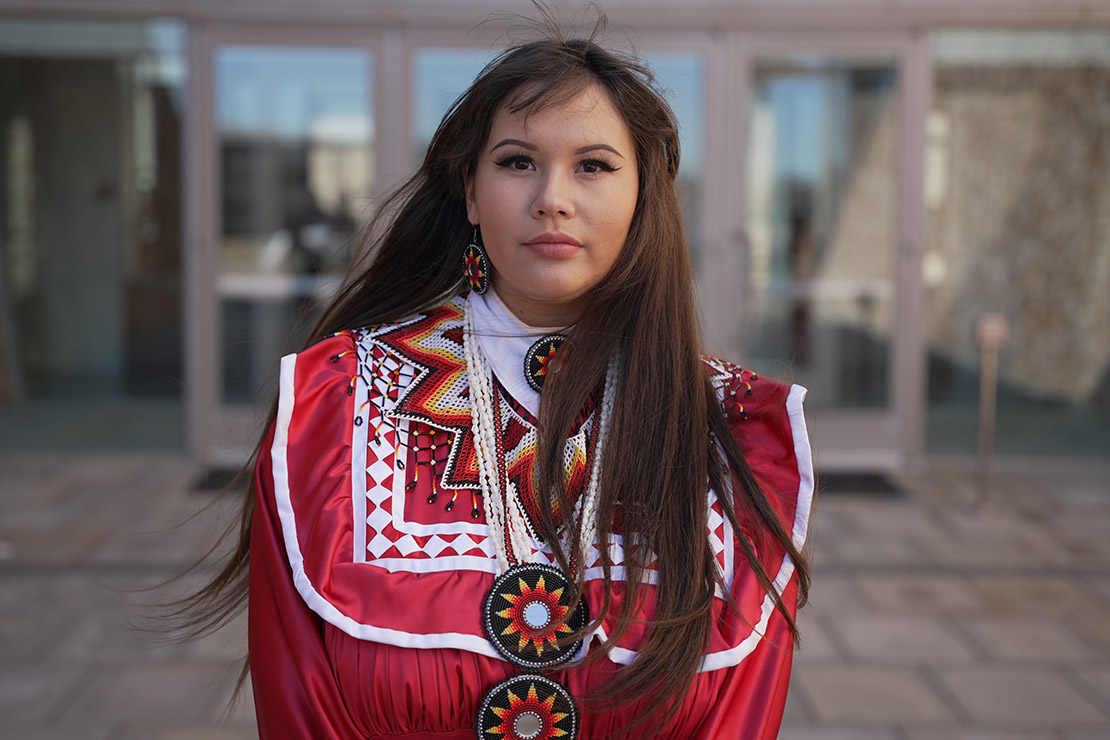
Isabella Blu Aiukli Cornell
Credit: Jordan Nicks
“In many of our tribes, tribal regalia are sacred items, like you receive a feather for an accomplishment, for something you earn. It isn’t something that you simply take or wear. Somebody has to give it to you. And it signifies this milestone, something that you have really achieved.” — Sarah, Choctaw Nation
“Everyone has a story to tell about the clothing, shoes, and hair that we choose to wear. When I graduated from Saint Francis Indian School, I was honored with the plume. Our babies got their Lakota names. They were honored with poems.” — Norma, Rosebud Sioux
“It’s important to me to be proud and to show the sacrifices my ancestors made and show the younger generation that they don’t have to be scared. It’s okay to be different from everybody else and to show off your tribe.” — Nataya, Choctaw Nation
“What’s super cool about our regalia is that it takes different community members to make it. Maybe you make your collar necklace, and maybe your mother is making your moccasins or your auntie is making your shawl. It’s like you are carrying your community with you when you wear your regalia, and there’s something about it that gives you a sense that you’re a part of something bigger, that you’re a part of a community and a people that have been here since the beginning that have survived atrocities that I will never understand.” — Sarah, Choctaw Nation
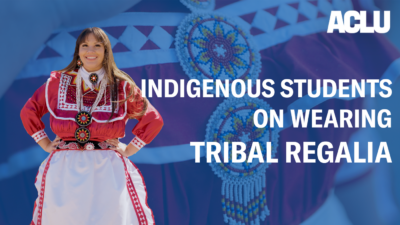
“This diamond trim that goes all around my apron and the trim of my dress and my cuffs and around my collar … reflects the Diamondback rattlesnake. Choctaw hold a really high regard for this snake, because it was very fundamental in our upbringing as a culture. We were farmers back in the day and would grow our crops to sustain our people. Pests like mice would get into our crops, but the snake would feed on the mice. So we hold it in high regard because it protected our food. We honor it as a protector of our people.” — Isabella, Choctaw Nation
How Tribal Regalia Bans are Being Enforced in Schools
“My little brother went to a Christian academy to start going to school there, but they told him his hair was too long and he needed to cut it to be able to go to school there. … They said it was a distraction. So we left the school and did not go back because it wasn’t an option to cut his hair at the time. And he was still very little.” — Nataya, Choctaw Nation
“I have a major sister who graduated, and somebody actually pulled her feather out while she was at graduation, like before she walked the stage, they took it.” — Sarah, Choctaw Nation
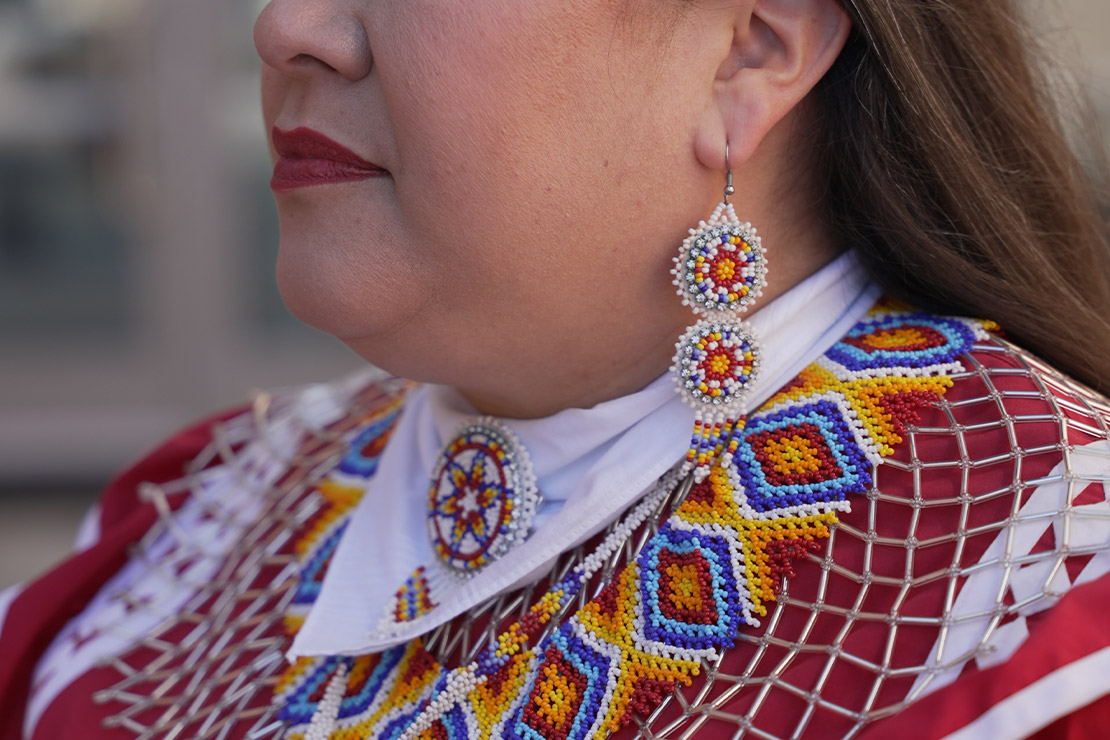
Sarah Adams-Cornell
Credit: Jordan Nicks
“I was considering maybe wearing a feather or having my cap beaded because I had heard stories about people who didn’t get to have that, people who had to hide that part of themselves, and people even going as far as maybe taking it from them, which is one of the most disrespectful things that you could do to an Indigenous person. So that fear was definitely in me at this time. Might that happen to me? Might that be something that I have to worry about?” — Isabella, Choctaw Nation
“It’s heartbreaking that our kids have to overcome barriers in their education, that they just can’t go and be who they are.” — Sarah, Choctaw Nation
A Legacy of Systemic Erasure in Schools
Up until 1960, the federal government worked with churches to implement an Indian Boarding School policy, which removed Indigenous children from their families and sent them away for re-education in boarding schools far from home. The stated intent of this program was to “kill the Indian, save the man.” As such, children would be “punished for speaking their native language, banned from acting in any way that might be seen to represent traditional or cultural practices, stripped of traditional clothing, hair and personal belongings and behaviors reflective of their native culture.” By 1925, 60,889 children had been sent to these schools — nearly 80 percent of school-age Indigenous children.
Today, Indigenous history is still being erased in schools, where most curriculums do not include Indigenous genocide and erasure despite its centrality to U.S. history.
“My grandmother was put in costume native clothing for people who would come to the boarding school so that she would look like the stereotypical pan-Indian person. So to be able to wear our actual clothes, to be able to represent as a Choctaw person was huge. It was pivotal in my identity.” — Sarah, Choctaw Nation
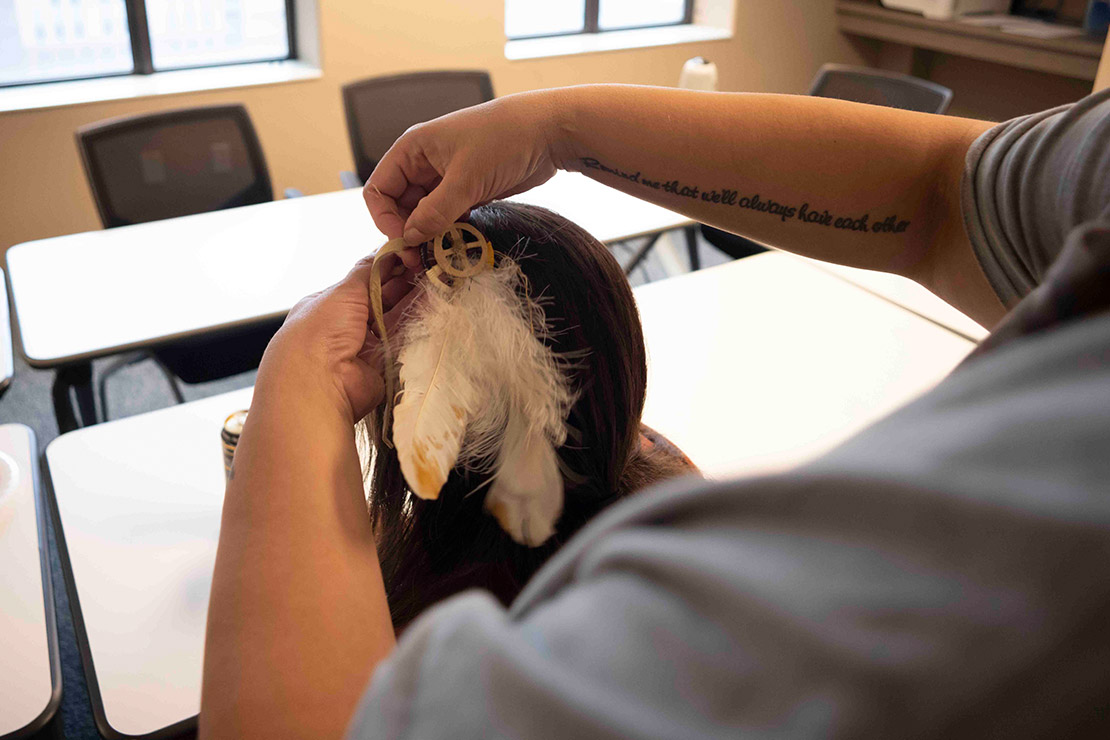
Alice Johnson putting a feather in her child’s hair.
Credit: Doug Barrett
“In 1879, when boarding schools became mandatory, Indigenous students were given military style quills in place of their regalia. Their hair was cut. They were given Christian names. This was the start of American genocide.” — Norma, Rosebud Sioux
“Whenever I think about this issue of people not wanting Indigenous kids to express their Indigeneity at graduation, it reminds me that these systems were never put in place with our well-being in mind … It wasn’t until my mom’s generation that the Freedom of Religion Act was passed, and they’re the first generation that were allowed to practice their culture and ceremonial ways without going to jail for it. So it really puts things into perspective when we still encounter these issues to this day, because we’re not as far along as we think we are.” — Isabella, Choctaw Nation
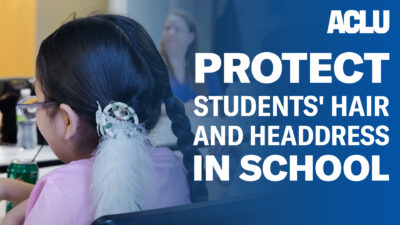
“I wished I was taught more about, like, how we got to this point where we’re one of the more impoverished places in this country, you know? How did that happen and what caused that? I do know some of the answers but I didn’t learn it from school. I really had to self-educate.” — Wyatt, Ochete Shakowi Nation
“I was born in 1978, and that’s when it was finally legal for us to speak our language, to sing our songs, to practice our ceremonies without going to jail. So this reclamation of identity is huge.” — Sarah, Choctaw Nation
Why Graduation Matters in the Fight to Wear Tribal Regalia
“This is a day of celebration for these students. And whenever a feather is given in these communities, it’s one of the highest honors that you can bestow upon someone. And it’s important to show your community this honor, to show people that your community is behind you and you have this honor. … And whenever we allow these kids to express themselves, we raise them to be strong and we raise them to be proud of who they are. So it’s incredibly important that we’re allowed to do this on this day. — Isabella, Choctaw Nation
“It makes me feel proud and ambitious.” — Nataya, Choctaw Nation
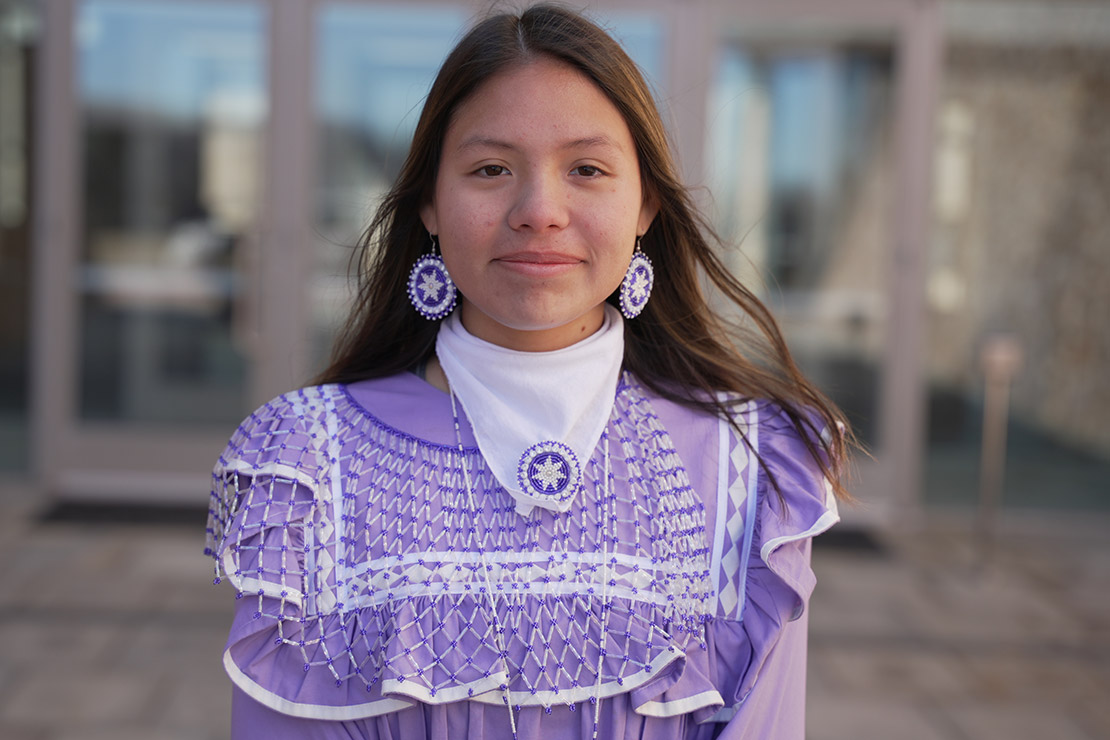
Nataya Meashintubby
Credit: Jordan Nicks
“It’s something that will be pivotal for them, something that will mean something to them when they are old and gray, when they’re looking at their memories of their education, of their childhood. And they will point back and they will look at that picture of themselves graduating and being fully Indigenous with their feather, with their beaded cap in their regalia in whatever way that they’re choosing to express themselves.” — Sarah, Choctaw Nation
“Representing yourself in your culture is an honor and everybody should be able to do it.” — Isabella, Choctaw Nation
Sending a Message to Lawmakers and Non-Indigenous Communities
The ACLU is working in states across the country to stop tribal regalia and hair bans, including in Nebraska, where we filed a lawsuit on behalf of Alice Johnson and Norma LeRoy, whose two children’s hair was cut by a school employee in violation of their traditional and religious Lakota beliefs. In Nebraska, we’re asking the state legislature to pass LB 630, a bill that would explicitly prohibit discrimination based on students’ racial, cultural, or religious attributes, including their hair, headdress, and tribal regalia. And in Oklahoma, we’re advocating for SB 429, new legislation that would allow students enrolled in certain schools or institutions to wear tribal regalia during graduation ceremonies.
“Understand that everybody has their own beliefs, their own cultures, their own religions, and not everyone celebrates accomplishments wearing suits and ties.” — Alice, Rosebud Sioux.
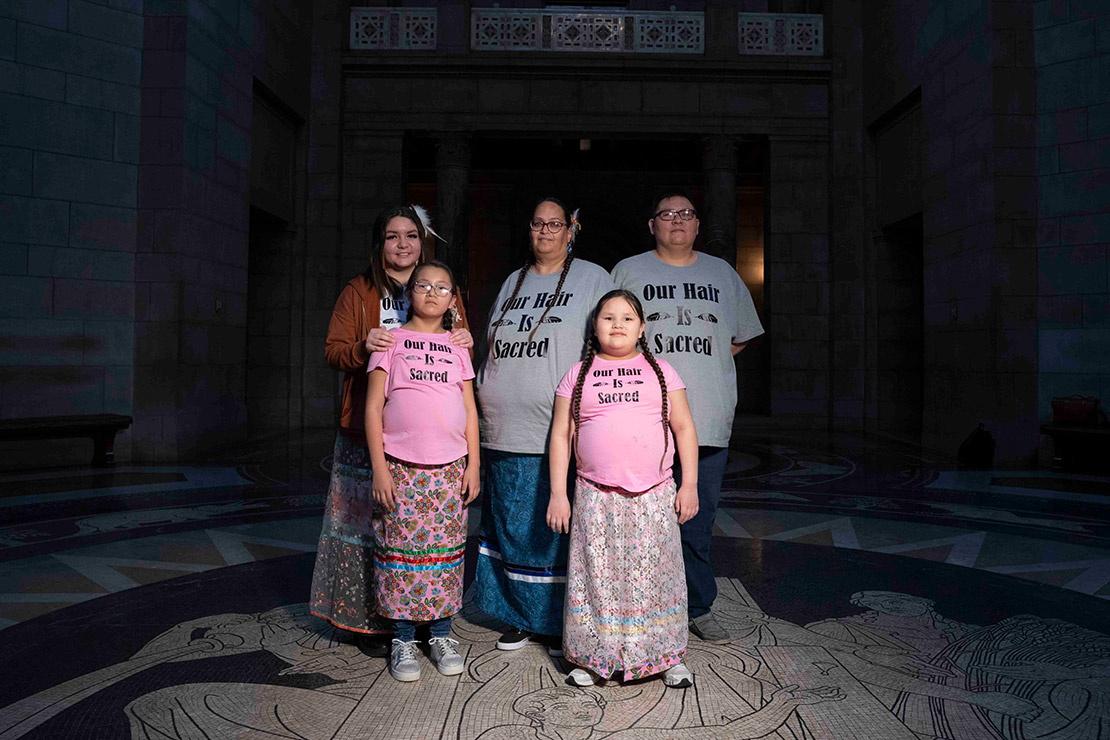
Back Left in Grey: Alice Johnson and Norma Leroy
Credit: Doug Barrett
“Everyone has an identity. Who we are. It doesn’t matter what race. We should be given the right to express that.” — Norma, Rosebud Sioux
“We are only bolstering our community when we have healthy children, when we have children who are tied to their cultural ways. That only strengthens the community. And when we have healthy kids and strong kids, we have a stronger state, we have a healthier community, and there is nothing but goodness in that.” — Sarah, Choctaw Nation
“Since the American genocide in the 1700s, we’ve been fighting for who we are, fighting for what we believe in, and fighting for our ceremonial practices. And through it all, we’ve shown to be resilient people, strong people. We’ve overcome everything that the government has thrown at us. We have our beliefs, our cultures and religions, our ceremonies and our connections with our ancestors. We carry our names proudly, and we are compassionate, humble people. And we only want what’s fair, respect who we are, respect our beliefs and respect what we live in practice.” — Alice, Rosebud Sioux
“We’re still here and we still deserve a voice, you know, and we still deserve to be talked about. And like, you can’t hide from us that what happened happened. You know, let’s learn from it. Let’s really learn. Because a society that doesn’t learn from their history is doomed to repeat it. And so why are we hiding from what happened? Let’s take it and let’s learn from it.” — Wyatt, Ochete Shakowi Nation
“The fact that we get to live in a time right now where reclamation is happening is exciting. I hope that we all get to be a piece of that, whether that’s by emailing our legislators, talking to them, explaining what regalia is encouraging them to support our community and be a part of this celebration. I can’t wait to see all of these kids walking across the stage and beaming. It’s going to be a good day.” — Sarah, Choctaw Nation
“We should be allowed to express who we are. We shouldn’t have to hide who we are on this day. So please listen to us when we’re saying these things and please genuinely take it to heart and consider it, because this is something that Indigenous students need and it doesn’t hurt anybody.” — Isabella, Choctaw Nation
Published May 13, 2023 at 12:54AM
via ACLU https://ift.tt/oxKl9Yt
ACLU: Why Indigenous Students Are Fighting to Wear Tribal Regalia at Graduation
It’s graduation season, and students are getting ready to put on their caps and gowns to celebrate this rite of passage. For many Indigenous students, this milestone event cannot be fully realized without wearing traditional tribal regalia, which are sacred markers of achievement, tradition, and connection with ancestors.
In some states, however, students are prohibited from displaying their Indigenous identity through tribal regalia, such as feathers or beads, braids, or long hair. Schools have historically been used as a tool to forcibly assimilate Indigenous children, making today’s bans even more harmful to Indigenous communities. This history makes tribal regalia a source of empowerment for Indigenous students as they reclaim their identity and honor their ancestors.
These interviews have been edited and condensed for clarity.
The Meaning of Tribal Regalia
Tribal regalia can take many forms and differs from tribe to tribe. Each detail signifies a part of the tribe’s history, traditions, or beliefs — including colors, beadwork, and patterns — and it often takes many hours of work and several community or family members to produce an item. Regalia is usually handed down from elders and is worn for special occasions like graduation ceremonies.
“Our regalia has stories in it. It tells us about who we are as people. It tells the story of us and it allows us to show the world: Here’s who I am, and I’m proud to be Indigenous Choctaw.” — Isabella, Choctaw Nation

Isabella Blu Aiukli Cornell
Credit: Jordan Nicks
“In many of our tribes, tribal regalia are sacred items, like you receive a feather for an accomplishment, for something you earn. It isn’t something that you simply take or wear. Somebody has to give it to you. And it signifies this milestone, something that you have really achieved.” — Sarah, Choctaw Nation
“Everyone has a story to tell about the clothing, shoes, and hair that we choose to wear. When I graduated from Saint Francis Indian School, I was honored with the plume. Our babies got their Lakota names. They were honored with poems.” — Norma, Rosebud Sioux
“It’s important to me to be proud and to show the sacrifices my ancestors made and show the younger generation that they don’t have to be scared. It’s okay to be different from everybody else and to show off your tribe.” — Nataya, Choctaw Nation
“What’s super cool about our regalia is that it takes different community members to make it. Maybe you make your collar necklace, and maybe your mother is making your moccasins or your auntie is making your shawl. It’s like you are carrying your community with you when you wear your regalia, and there’s something about it that gives you a sense that you’re a part of something bigger, that you’re a part of a community and a people that have been here since the beginning that have survived atrocities that I will never understand.” — Sarah, Choctaw Nation

“This diamond trim that goes all around my apron and the trim of my dress and my cuffs and around my collar … reflects the Diamondback rattlesnake. Choctaw hold a really high regard for this snake, because it was very fundamental in our upbringing as a culture. We were farmers back in the day and would grow our crops to sustain our people. Pests like mice would get into our crops, but the snake would feed on the mice. So we hold it in high regard because it protected our food. We honor it as a protector of our people.” — Isabella, Choctaw Nation
How Tribal Regalia Bans are Being Enforced in Schools
“My little brother went to a Christian academy to start going to school there, but they told him his hair was too long and he needed to cut it to be able to go to school there. … They said it was a distraction. So we left the school and did not go back because it wasn’t an option to cut his hair at the time. And he was still very little.” — Nataya, Choctaw Nation
“I have a major sister who graduated, and somebody actually pulled her feather out while she was at graduation, like before she walked the stage, they took it.” — Sarah, Choctaw Nation

Sarah Adams-Cornell
Credit: Jordan Nicks
“I was considering maybe wearing a feather or having my cap beaded because I had heard stories about people who didn’t get to have that, people who had to hide that part of themselves, and people even going as far as maybe taking it from them, which is one of the most disrespectful things that you could do to an Indigenous person. So that fear was definitely in me at this time. Might that happen to me? Might that be something that I have to worry about?” — Isabella, Choctaw Nation
“It’s heartbreaking that our kids have to overcome barriers in their education, that they just can’t go and be who they are.” — Sarah, Choctaw Nation
A Legacy of Systemic Erasure in Schools
Up until 1960, the federal government worked with churches to implement an Indian Boarding School policy, which removed Indigenous children from their families and sent them away for re-education in boarding schools far from home. The stated intent of this program was to “kill the Indian, save the man.” As such, children would be “punished for speaking their native language, banned from acting in any way that might be seen to represent traditional or cultural practices, stripped of traditional clothing, hair and personal belongings and behaviors reflective of their native culture.” By 1925, 60,889 children had been sent to these schools — nearly 80 percent of school-age Indigenous children.
Today, Indigenous history is still being erased in schools, where most curriculums do not include Indigenous genocide and erasure despite its centrality to U.S. history.
“My grandmother was put in costume native clothing for people who would come to the boarding school so that she would look like the stereotypical pan-Indian person. So to be able to wear our actual clothes, to be able to represent as a Choctaw person was huge. It was pivotal in my identity.” — Sarah, Choctaw Nation

Alice Johnson putting a feather in her child’s hair.
Credit: Doug Barrett
“In 1879, when boarding schools became mandatory, Indigenous students were given military style quills in place of their regalia. Their hair was cut. They were given Christian names. This was the start of American genocide.” — Norma, Rosebud Sioux
“Whenever I think about this issue of people not wanting Indigenous kids to express their Indigeneity at graduation, it reminds me that these systems were never put in place with our well-being in mind … It wasn’t until my mom’s generation that the Freedom of Religion Act was passed, and they’re the first generation that were allowed to practice their culture and ceremonial ways without going to jail for it. So it really puts things into perspective when we still encounter these issues to this day, because we’re not as far along as we think we are.” — Isabella, Choctaw Nation

“I wished I was taught more about, like, how we got to this point where we’re one of the more impoverished places in this country, you know? How did that happen and what caused that? I do know some of the answers but I didn’t learn it from school. I really had to self-educate.” — Wyatt, Ochete Shakowi Nation
“I was born in 1978, and that’s when it was finally legal for us to speak our language, to sing our songs, to practice our ceremonies without going to jail. So this reclamation of identity is huge.” — Sarah, Choctaw Nation
Why Graduation Matters in the Fight to Wear Tribal Regalia
“This is a day of celebration for these students. And whenever a feather is given in these communities, it’s one of the highest honors that you can bestow upon someone. And it’s important to show your community this honor, to show people that your community is behind you and you have this honor. … And whenever we allow these kids to express themselves, we raise them to be strong and we raise them to be proud of who they are. So it’s incredibly important that we’re allowed to do this on this day. — Isabella, Choctaw Nation
“It makes me feel proud and ambitious.” — Nataya, Choctaw Nation

Nataya Meashintubby
Credit: Jordan Nicks
“It’s something that will be pivotal for them, something that will mean something to them when they are old and gray, when they’re looking at their memories of their education, of their childhood. And they will point back and they will look at that picture of themselves graduating and being fully Indigenous with their feather, with their beaded cap in their regalia in whatever way that they’re choosing to express themselves.” — Sarah, Choctaw Nation
“Representing yourself in your culture is an honor and everybody should be able to do it.” — Isabella, Choctaw Nation
Sending a Message to Lawmakers and Non-Indigenous Communities
The ACLU is working in states across the country to stop tribal regalia and hair bans, including in Nebraska, where we filed a lawsuit on behalf of Alice Johnson and Norma LeRoy, whose two children’s hair was cut by a school employee in violation of their traditional and religious Lakota beliefs. In Nebraska, we’re asking the state legislature to pass LB 630, a bill that would explicitly prohibit discrimination based on students’ racial, cultural, or religious attributes, including their hair, headdress, and tribal regalia. And in Oklahoma, we’re advocating for SB 429, new legislation that would allow students enrolled in certain schools or institutions to wear tribal regalia during graduation ceremonies.
“Understand that everybody has their own beliefs, their own cultures, their own religions, and not everyone celebrates accomplishments wearing suits and ties.” — Alice, Rosebud Sioux.

Back Left in Grey: Alice Johnson and Norma Leroy
Credit: Doug Barrett
“Everyone has an identity. Who we are. It doesn’t matter what race. We should be given the right to express that.” — Norma, Rosebud Sioux
“We are only bolstering our community when we have healthy children, when we have children who are tied to their cultural ways. That only strengthens the community. And when we have healthy kids and strong kids, we have a stronger state, we have a healthier community, and there is nothing but goodness in that.” — Sarah, Choctaw Nation
“Since the American genocide in the 1700s, we’ve been fighting for who we are, fighting for what we believe in, and fighting for our ceremonial practices. And through it all, we’ve shown to be resilient people, strong people. We’ve overcome everything that the government has thrown at us. We have our beliefs, our cultures and religions, our ceremonies and our connections with our ancestors. We carry our names proudly, and we are compassionate, humble people. And we only want what’s fair, respect who we are, respect our beliefs and respect what we live in practice.” — Alice, Rosebud Sioux
“We’re still here and we still deserve a voice, you know, and we still deserve to be talked about. And like, you can’t hide from us that what happened happened. You know, let’s learn from it. Let’s really learn. Because a society that doesn’t learn from their history is doomed to repeat it. And so why are we hiding from what happened? Let’s take it and let’s learn from it.” — Wyatt, Ochete Shakowi Nation
“The fact that we get to live in a time right now where reclamation is happening is exciting. I hope that we all get to be a piece of that, whether that’s by emailing our legislators, talking to them, explaining what regalia is encouraging them to support our community and be a part of this celebration. I can’t wait to see all of these kids walking across the stage and beaming. It’s going to be a good day.” — Sarah, Choctaw Nation
“We should be allowed to express who we are. We shouldn’t have to hide who we are on this day. So please listen to us when we’re saying these things and please genuinely take it to heart and consider it, because this is something that Indigenous students need and it doesn’t hurt anybody.” — Isabella, Choctaw Nation
Published May 12, 2023 at 08:24PM
via ACLU https://ift.tt/7Xo2aAI
